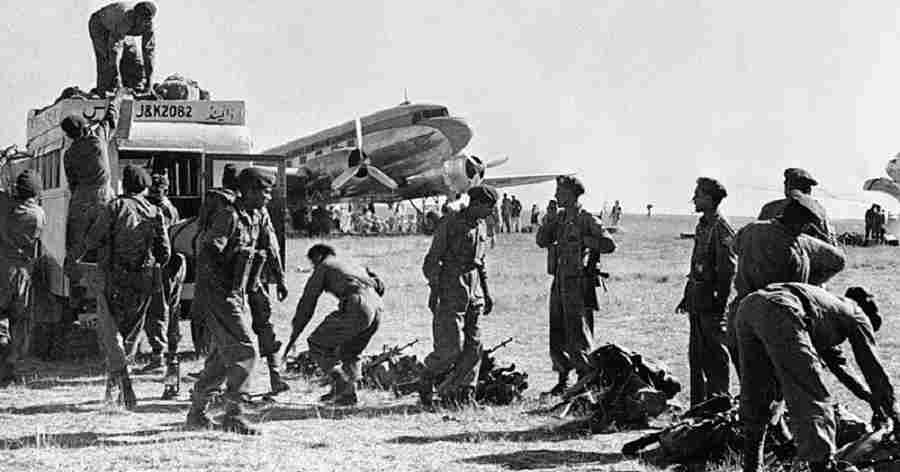
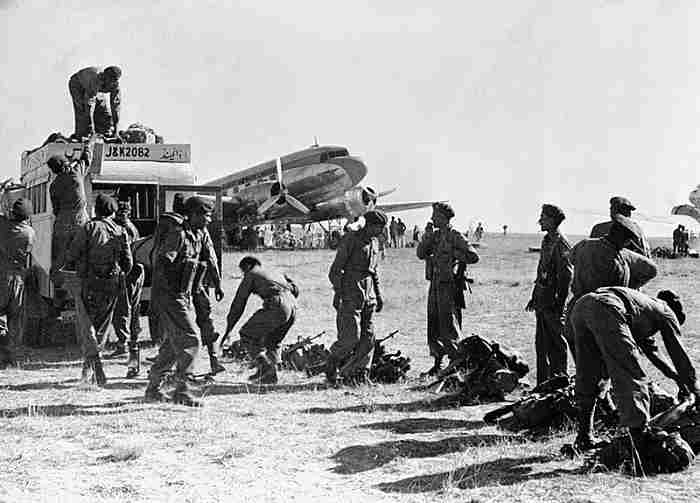
The India-Pakistan War of 1947, often referred to as the First Kashmir War, was a conflict that erupted shortly after the partition of British India into two independent nations, India and Pakistan, in August 1947. The war was primarily fought over the princely state of Jammu and Kashmir, which was given the option to join either India or Pakistan. Its ruler, Maharaja Hari Singh, initially sought to remain independent but eventually chose to accede to India, leading to a violent and complex conflict.
In October 1947, faced with an invasion by tribal militias supported by Pakistan, Maharaja Hari Singh sought military assistance from India and agreed to accede to India in exchange for military help. This decision led to India's intervention in the conflict. Pakistan denied any involvement in the tribal invasion, but it became clear that their military was providing support to the tribal forces. The conflict quickly escalated as the Indian and Pakistani armies got involved.
India took the issue to UN Security Council (UNSC) on 1 January 1948. Consequently, United Nations Commission for India and Pakistan (UNCIP) was set-up and the UN Security Council passed Resolution 47 on 21 April 1948, which imposed an immediate cease-fire. The ceasefire resulted in the de facto division of Kashmir between India and Pakistan. India retained control of the majority of the region, while Pakistan held the smaller part.
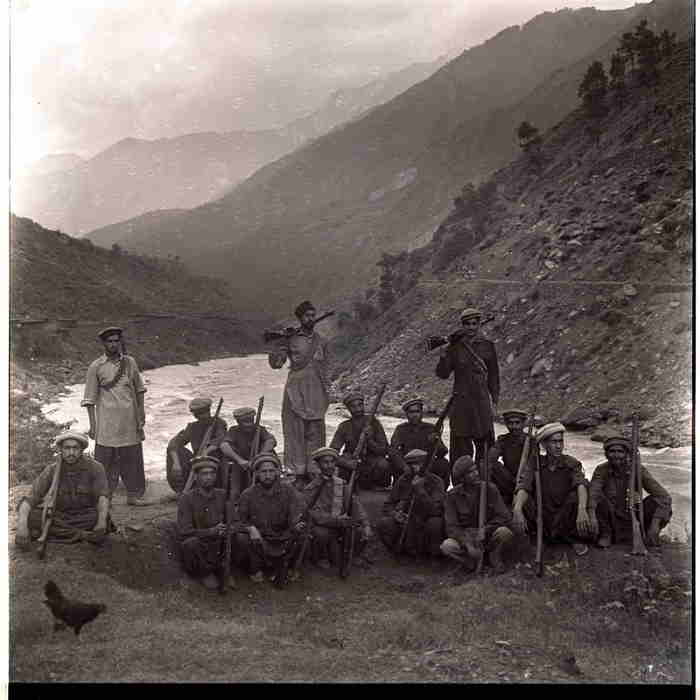
The India-Pakistan War of 1965 was a conflict between India and Pakistan that lasted from August 5 to September 23, 1965. The core issue revolved around the region of Kashmir, which had been a source of tension since the partition of India in 1947. Both India and Pakistan claimed Kashmir in its entirety, and this dispute led to multiple conflicts. Prior to the full-scale war, a skirmish had occurred in the Rann of Kutch, a region along the India-Pakistan border, in early 1965. It was resolved through mediation, but it heightened tensions between the two nations.
In August 1965, Pakistan initiated a covert operation named 'Operation Gibraltar', involving the infiltration of armed guerrillas into Indian-administered Jammu and Kashmir, with the aim of inciting an insurgency against Indian rule. India responded by launching a full-scale military operation, codenamed "Operation Grand Slam," in the Chhamb-Jaurian sector of Jammu and Kashmir. This marked the official beginning of the war. The war then escalated as both sides launched air strikes on each other’s cities. The war was fought primarily in the regions of Jammu and Kashmir, Punjab, and Rajasthan. In Jammu and Kashmir, the Indian army managed to push back the Pakistani forces, while in Punjab, the Pakistani army was able to capture the town of Khem Karan. The Indian air force was also able to inflict heavy damage on Pakistani air bases in the region. In Rajasthan, both sides engaged in a series of tank battles, with the Pakistani forces eventually being forced to retreat. After several weeks of fighting, both sides agreed to a ceasefire on September 23, 1965.
The war resulted in a stalemate, with neither side able to gain any decisive advantage. The UN Security Council passed resolution 211, calling for an immediate ceasefire and the withdrawal of forces to the pre-war positions. The war eventually ended with the signing of the Tashkent Declaration in 1966, which called for the restoration of the pre-war borders.
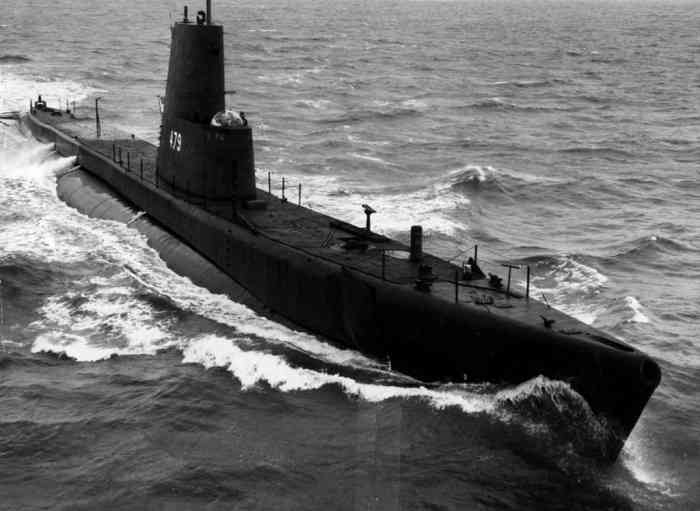
The India-Pakistan War of 1971 was a major conflict between India and Pakistan that lasted for 13 days, from December 3 to December 16, 1971. It culminated in the creation of the independent nation of Bangladesh and marked a significant turning point in South Asian history.
The conflict had its roots in the political and ethnic tensions between East Pakistan (now Bangladesh) and West Pakistan (present-day Pakistan). East Pakistan, despite having a majority of the population, faced economic and political marginalization by the West Pakistani government. The people of East Pakistan had been demanding autonomy and recognition of their Bengali identity for years. The Awami League, led by Sheikh Mujibur Rahman, won a decisive victory in the 1970 general elections and demanded greater autonomy for East Pakistan.
On the night of March 25, 1971, the Pakistan Army launched a brutal military crackdown in East Pakistan to suppress the Bengali independence movement. This led to widespread atrocities and loss of life. As the situation deteriorated, millions of refugees fled to India, leading to a humanitarian crisis. India, under Prime Minister Indira Gandhi, supported the Bangladeshi cause and provided sanctuary to refugees. The Indian government began providing military assistance to the East Pakistani liberation forces.
On December 3, 1971, Pakistan launched a pre-emptive attack on 11 Indian airbases, which prompted a full-scale invasion by the Indian Army. Indian forces quickly advanced into East Pakistan and captured Dhaka, the capital of East Pakistan, on December 16. The Pakistani forces surrendered and the war ended with the signing of the Instrument of Surrender. The war resulted in the creation of the independent state of Bangladesh. The Indian forces captured over 90,000 Pakistani soldiers and civilians, and India also gained control of some territory which had previously been held by Pakistan.
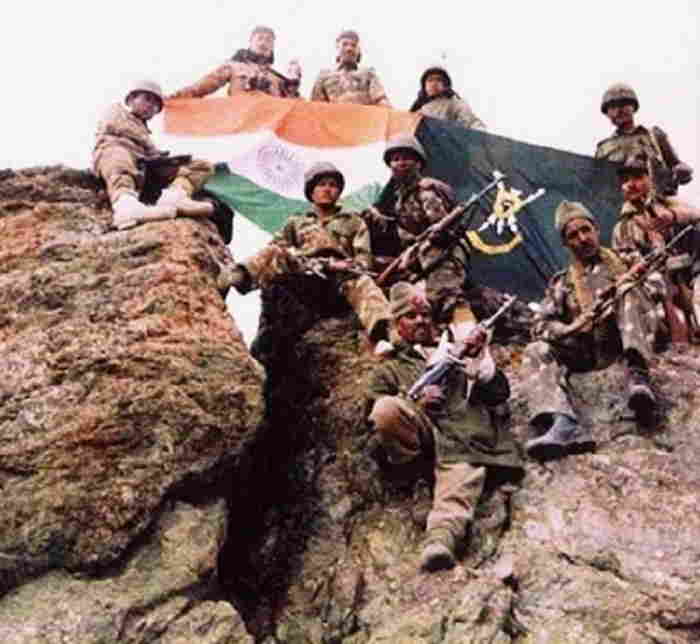
Kargil War was an armed conflict between India and Pakistan that lasted from May to July of 1999. The conflict was fought primarily in the Kargil district of Kashmir and along the Line of Control (LoC), the de facto border between the two countries. In early 1999, Pakistani military forces, including troops and militants, infiltrated into Indian territory in the Kargil region. Their objective was to occupy strategic positions in the high-altitude mountains, which could potentially threaten key supply routes for the Indian Army. The discovery of Pakistani infiltration led to a swift and determined response from the Indian Army. Indian forces launched a military operation named "Operation Vijay" to reclaim the infiltrated areas.
The Kargil War witnessed fierce battles at high altitudes, with both sides suffering casualties due to the difficult terrain and extreme weather conditions. The conflict saw close combat and artillery exchanges. The international community, including the United States, played a role in pressuring Pakistan to withdraw its forces from the region. India's diplomatic efforts highlighted Pakistan's aggression. Under international pressure and mounting casualties, Pakistan began withdrawing its forces from the Kargil region in July 1999. The conflict officially ended on July 26, 1999. The war ended with both sides essentially returning to their pre-war positions along the Line of Control.